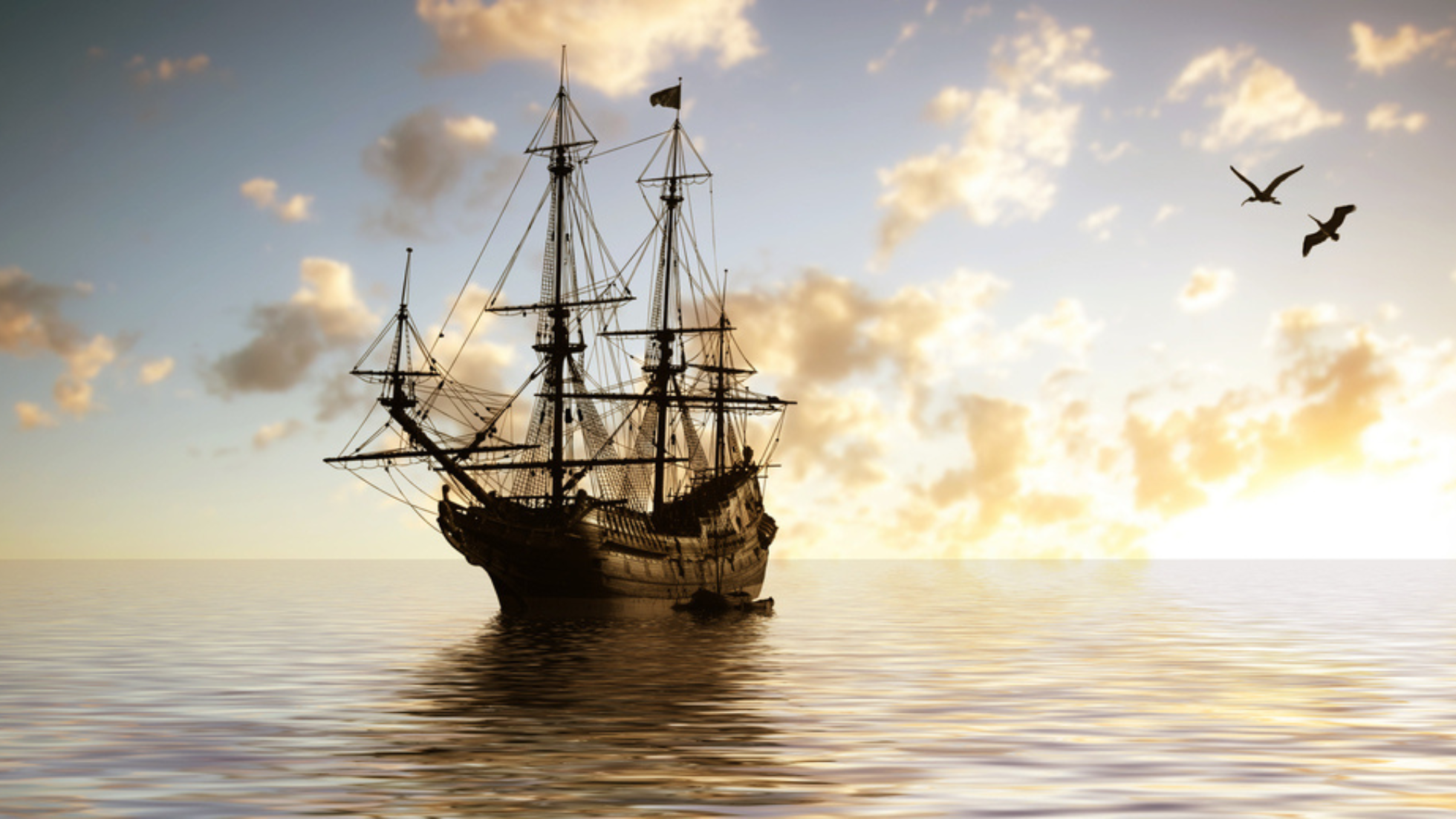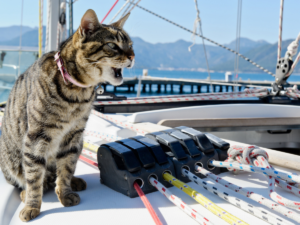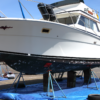
Myth or reality? Ancient mariners held beliefs and honored rituals which were designed to ensure a happy voyage. These superstitions were in fact a kind of religion that was carefully crafted to ensure a safe passage and they’ve survived the test of time since salty sailors today still heed many of these rules before casting off from the dock.
1) Fear the Friday
Sailors should avoid starting a voyage on a Friday – any Friday, not just Friday the 13th. Fridays are considered unlucky possibly because Christ was crucified on a Friday. Thursday isn’t much better since it’s “Thor’s Day” and Thor was the god of thunder, which could mean inbound storms.
2) Fear the Female
Women aboard were considered bad luck except as wooden figureheads at the bows of ships. Presumably, sailors were distracted by real women aboard and performed their duties poorly. Well-endowed figureheads were often the only “females” aboard and were honored for their ability to calm angry seas.
 3) Cherish the Cat
3) Cherish the Cat
Unlike women, cats had a place of honor aboard a ship. Cats caught and killed rodents that spread disease, and they also ate cockroaches and other vermin. If a cat went overboard, a ship could be cursed for years. Sailors also believed cats could forecast the weather. Sneezing meant incoming rain, restlessness was a sign of wind, and licking its fur against the grain meant hail.
4) No Name Changes
Boats are christened not just named and it’s bad luck to change the name of a boat. If you must change it, a ceremony is required where the current name is written on paper and placed in a wooden box which is then burned and the ashes are scattered at sea. When a new name is given, a bottle of bubbly is then smashed across the bow as a toast to Poseidon, the Greek god of the sea. You should never say the old name in the presence of the newly renamed boat and you should also avoid using new names that start with the letter “A”.
5) No Whistling
No captain tolerates whistling aboard because you could “whistle up an ill wind” which means you’re asking for a storm. Of course, if you’re stuck in the windless doldrums, it may come in handy to fill your sails.
6) No Bananas
Bananas are bad luck aboard and there are multiple theories as to why. Banana stalks are often homes to spiders like tarantulas. Also, fermenting bananas in a ship’s hot hull could create toxic ethylene gas that would overwhelm sailors and incapacitate a ship. In Polynesia, bananas were considered food of the gods so sailing away with a bunch would have conjured up the gods’ wrath and doomed a ship.
7) Step Aboard Mindfully
Always step aboard a vessel with your right foot first and be sure to ask the captain’s permission before doing so. Also, don’t bring flowers as they are associated with funerals and graves and can spell doom for a voyage.
8) Respect the Albatross
Albatrosses were thought to carry the souls of dead sailors coming to visit their shipmates, so the birds were respected and killing one was a bad omen. From this belief springs the saying, “an albatross around my neck” which means a burden that must be borne.
 9) No Haircuts or Shaving
9) No Haircuts or Shaving
Cutting one’s hair, shaving and trimming nails was considered bad luck. Some of this may have had to do with old ships having limited fresh water aboard so personal grooming was the first thing to go. It’s good then that no women were aboard.
10) Tattoos
Tattoos are considered lucky. They probably served as a living history of a sailor’s voyages, which was useful to those who were illiterate. A tattoo of the North Star or a compass rose was believed to help guide a sailor’s ship back home. Tattoos of animals were said to protect against drowning, which was important to sailors who often couldn’t swim.
Old mariners faced dangers and many uncertainties, so they created lore that helped them deal with the unpredictable and cope with the reality of harsh living conditions aboard. There are some boaters today who still honor the rules of the sea because … why tempt fate?








